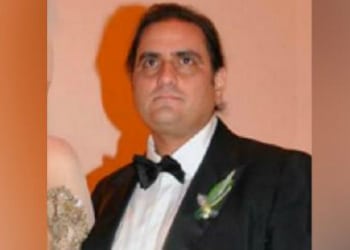A court in Cabo Verde has approved the extradition to the United States of Colombian businessman Álex Saab, who may hold key information on alleged money laundering schemes involving Venezuelan President Nicolás Maduro and other top officials.
Judges for the West African nation’s Constitutional Court issued the nearly 200-page ruling on September 7, according to court documents published by Infobae.
Saab’s attorneys have been fighting the extradition since his arrest in June 2020 when his private jet landed on the Cabo Verde island of Sal. Venezuela’s government and President Maduro also have long protested his detention and possible extradition on US charges of running a multi-million dollar money-laundering network.
The tug-of-war over Saab has played out in Cabo Verde’s courts for more than a year. His defense team, led by former Spanish judge Baltasar Garzón, has argued that the Colombian businessman was on a humanitarian mission to Iran as a special envoy of Maduro and this conferred Saab with diplomatic immunity, Reuters reported. The government said Saab was en route to buy food and medical supplies for the coronavirus pandemic upon his arrest.
SEE ALSO: Álex Saab Profile
His lawyers have also appealed to outside bodies, including the United Nations Human Rights Committee, which asked in June that Saab’s extradition be halted to allow it to examine his case. But Cabo Verde’s Attorney General Luis José Tavares Landim said that the UN committee had no authority to force the suspension of court proceedings.
More recently, in mid-August, Saab’s attorneys submitted a complaint against the attorney general and Cabo Verde’s appeals court judges, alleging they violated Saab’s rights.
Several days ago, Saab was transferred to Cabo Verde’s capital of Praia to receive medical attention, according to sources who spoke to Spanish-language news agency EFE.
Saab is suffering from cancer, diabetes, hypertension and heart problems, and his “health has deteriorated significantly,” said the sources, who spoke anonymously.
InSight Crime Analysis
The United States government may seek a cooperation agreement with Saab – a move the Venezuelan government likely wants to avoid at all costs.
In a January 21 filing to the US court in charge of the case, his lawyers included a letter sent to Saab by Venezuelan Foreign Minister Jorge Arreaza. The July 1 letter addresses Saab’s detention, telling him that as the Special Representative of the Bolivarian Republic he has classified information about “national security and defense.” It also warns him that he could face criminal proceedings for divulging information.
“You are subject to Venezuelan law and have a duty to maintain strict confidentiality with respect to the classified information you possess,” Arreaza wrote.
The letter is part of a series of filings by Saab’s lawyers to have his 2019 indictment on money laundering charges dismissed.
SEE ALSO: The Fall of Álex Saab, the Venezuelan Regime’s Trusted Money Man
That indictment accuses Saab of being part of a corruption scheme that included kickbacks to Venezuelan government officials in connection to a 2011 contract to build low-income housing units that were never constructed. According to the US Justice Department, Saab and his partner funneled more than $350 million to overseas accounts.
The US Treasury Department has also accused Saab of using shell companies to embezzle money from Venezuela’s Local Storage and Production Committees (Comités Locales de Abastecimiento y Producción — CLAP) food aid program. Saab and others allegedly paid bribes and kickbacks to government officials to win no-bid, overpriced contracts to import food ration boxes for poor Venezuelans. The imported bulk food was of poor quality and was bought at inflated prices.
Saab – a close ally of Maduro – has served as an important dealmaker for the regime, helping to prop it up in the face of US sanctions. Saab was instrumental in negotiating deals to sell Venezuelan gold to countries such as Turkey. He also took part in negotiations with Iran to bring much-needed oil to Venezuela, according to Bloomberg.
If Saab were to cooperate, he would likely be able to provide US prosecutors with a complete inventory of alleged illicit cash flows and other criminal activities involving Maduro and the Venezuelan government. According to former Venezuela Attorney General Luisa Ortega, Saab laundered money for Maduro, his family and a number of government officials.
The legal saga of Saab’s extradition, though, suggests that his lawyers are prepared for a fight and that negotiations are likely to be slow going if they happen at all.

